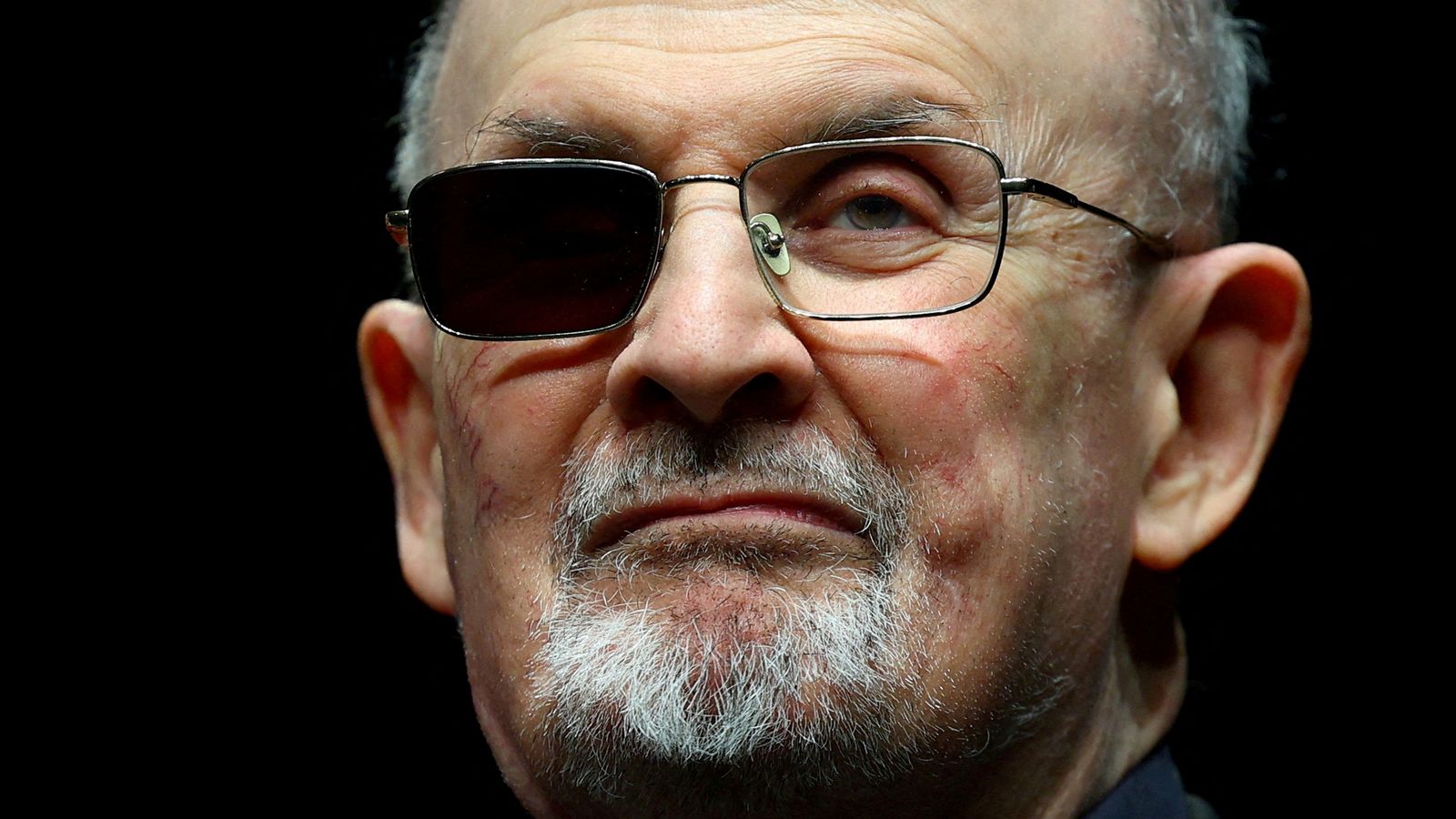U.K News
Salman Rushdie attack: Hadi Matar found guilty of attempted murder after stabbing author multiple times on stage

A Tragic Attack on Salman Rushdie: A Case of Attempted Murder
Introduction to the Case
In a shocking turn of events, Sir Salman Rushdie, the renowned British-American author, was brutally attacked in August 2022 while preparing to deliver a speech in New York. The incident, which occurred at the Chautauqua Institution, left Rushdie with life-threatening injuries, including a blinded right eye, a severely damaged hand, and internal organ damage. The attacker, 27-year-old Hadi Matar, was recently found guilty of attempted murder and assault after a trial in Chautauqua County Court. The jury reached their verdict in less than two hours of deliberation, marking a significant moment in a case that has drawn global attention due to its implications on free speech and artistic expression.
The Attack and Its Aftermath
On August 12, 2022, Salman Rushdie, who had spent much of the 1990s in hiding due to death threats over his controversial novel The Satanic Verses, was about to address an audience at the Chautauqua Institution when Matar stormed the stage. The assailant, wearing black clothing and a face mask, stabbed Rushdie repeatedly—approximately 15 times—in the head, neck, torso, and left hand. The attack was witnessed by a horrified audience, and Rushdie’s co-speaker, Henry Reese, was also injured, suffering a gash to his forehead. Rushdie’s injuries were so severe that he lost vision in one eye, sustained liver and intestinal damage, and required months of recovery.
During the trial, Rushdie described the attack in vivid detail, recounting his final thoughts as he lay bleeding: “I thought he was hitting me with his fist, but I saw a large quantity of blood pouring onto my clothes. It occurred to me that I was dying. That was my predominant thought.” The graphic nature of the attack and the severity of Rushdie’s injuries underscored the brutality of the crime, leaving many in the courtroom and beyond shaken.
The Trial and Conviction of Hadi Matar
The trial of Hadi Matar was a highly publicized and emotionally charged event. Prosecutors presented compelling evidence, including video footage of the attack, to argue that Matar’s actions were premeditated and intended to kill. District Attorney Jason Schmidt emphasized the targeted and unprovoked nature of the attack, stating, “There were a lot of people around that day, but there was only one person who was targeted.” The prosecution also highlighted the sheer brutality of the stabbing, with Schmidt noting that inflicting such injuries was likely to result in death.
Matar’s defense team, however, argued that the prosecution had not proven beyond a reasonable doubt that their client’s conscious intent was to murder Rushdie. Defense attorney Andrew Brautigan urged the jury to consider the possibility that Matar’s actions, while undeniably violent, may not have been driven by an express intent to kill. Despite these arguments, the jury was unconvinced, delivering a guilty verdict for both attempted murder and assault.
Reactions to the Verdict
When the verdict was announced, Hadi Matar displayed little emotion, quietly muttering “free Palestine” as he was escorted out of the courtroom in handcuffs. This statement has sparked speculation about his motivations, with some suggesting that the attack may have been politically or ideologically driven. However, the trial did not explore these potential motives in detail, focusing instead on the facts of the attack and Matar’s intent.
The conviction has been met with a mix of relief and reflection from Rushdie’s supporters and advocates for free speech. While many have expressed gratitude that justice has been served, others have used the moment to highlight the ongoing threats faced by artists and writers who challenge societal norms or political ideologies. Salman Rushdie, who has long been a symbol of resistance against censorship and intimidation, continues to inspire admiration and solidarity from around the world.
Sentencing and Federal Charges
Hadi Matar is now facing a maximum sentence of 25 years in prison for the attempted murder of Salman Rushdie and the assault of Henry Reese. His sentencing is scheduled for April 23, 2024, and prosecutors are expected to seek the harshest possible punishment. In addition to the state charges, Matar is also facing separate federal charges, including an allegation that the attack was an act of terrorism. Federal prosecutors have accused him of attempting to murder Rushdie as a act of terrorism and of providing material support to the Lebanon-based armed group Hezbollah, which is designated as a terrorist organization by the United States.
These additional charges raise the stakes for Matar and suggest that the case may have broader implications for national security and international relations. If convicted on the federal charges, Matar could face even harsher penalties, potentially extending his prison sentence significantly.
Reflections on Freedom of Expression and Safety
The attack on Salman Rushdie has reignited debates about freedom of expression, artistic freedom, and the safety of public intellectuals. Rushdie’s own history of living under threat for decades due to the controversy surrounding The Satanic Verses adds a poignant layer to this case. As a writer who has long championed the right to express controversial ideas, Rushdie’s resilience in the face of violence has inspired countless people around the world.
The guilty verdict in this case serves as a reminder of the consequences of violence and the importance of upholding the rule of law. While the attack on Rushdie was a horrific act of violence, it has also sparked renewed conversations about the importance of protecting free expression and the need to ensure that artists, writers, and thinkers can share their ideas without fear of harm. As Salman Rushdie continues his recovery and Hadi Matar faces justice, this case remains a powerful reminder of the ongoing struggle between creativity and censorship, tolerance and extremism.


















